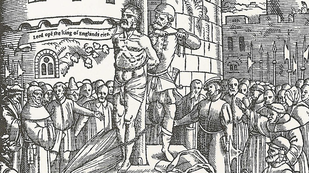 Recently, Tracy Chapman’s iconic song “Fast Car” hit the stage of the 2024 Grammies as a duet with Luke Combs and herself. What a moment. You can see the star-studded crowd feel it. Even the newer, millennial+ felt and grooved to the older, nostalgic vibe. This song was written back in April of 1988, “a poignant narrative about the struggle of escaping poverty and seeking a better life.” Even before I read up on the song, I knew it was about “escaping poverty and seeking a better life.” This morning, as I do most Thursday mornings, I was returning from shopping for Saturday’s Sidewalk Breakfast and I was playing the recent Grammy version of “Fast Car” (the gone viral Chapman’s and Comb’s version) as I pulled into my Trowbridge Hill neighborhood, rounded the park where we do the summer Park BBQ evening meals, and I thought of our neighbors, struggling with the issues and barriers of poverty. Like the song, wondering if they’d find “a better life.” As the chorus blow up with that wonderful Chapman and Combs harmony, my eye caught about a half dozen of our local neighborhood homeless in the Park. (How do they sleep in the freezing cold? Amazing. Sad. I cannot imagine) Tears. I wondered, who’d write their songs. Seriously I did. Corny. Perhaps. But seriously. A whole country of folks right now are grooving on repeats of that, now gone viral, Grammy duet of “Fast Car” YouTube video. Heck, I am. They be grooving. Sure. But not actually identifying with (as that celebrity filled Grammy audience was not) nor thinking about the poor and homeless . . . as the song was imagining me to think. As I made the block from the Park to my apartment, I thought about the 35 to 40 folks who’d be at this Saturday’s Sidewalk Breakfast & Church (like each Saturday). Toilet paper among my purchases this morning. I thought about the 18, sometime 20+, folks who’d stop by my Wednesday Sidewalk Coffee & Conversations with the pastor. Mostly homeless. If it takes making coffee and buying some pastries each week to build relationships as a pastor (as anyone really for that matter!) with these folk, who most likely don’t know a pastor and are forgotten by most (even Christians), then, coffee and pastries it is. Cold. Rain. Sun. No matter for Saturday nor for Wednesday. If it takes food to reach and win these folks, I’d gladly give my pay-check (with some help from my friends!). “Fast Car” isn’t just a feel good groove from some bygone classic pre-millennial music era. It’s real life here in the Hill. Minus the “Fast Car.” Postscript to my thoughts as the song played rounding Trowbridge Square Park: I prayed, “Father, give me more folks [outside the Hill; God knew what I meant] who’d minister with us to these good folks and please, O please, send us someone to play music for us on Saturdays. Maybe even someone who could play “Fast Car.” Seriously, that’s what I prayed.
0 Comments
 This morning on the Sidewalk and at Sunday service tomorrow, I begin a series through the prophet Jeremiah’s book. What got the ball rolling in my thought process—on why did I pick Jeremiah as the next series—was a question I had been asking since my alma mater’s (Crown College’s, aka St. Paul Bible College’s) 100th anniversary’s gathering a few years ago. At one of the weekend’s events, they gathered together the previous Crown presidents for a Q&A. The final question was, “What is one thing that isn’t being taught at Crown College that needs to be taught at Crown College?” The last answer came from the oldest and most senior of the former Crown College presidents (he was back in the 70s; I was there ’81-’84), Dr. Grubbs, a kindly and wise Christian & Missionary Alliance elder statesman; he said: “How the students will endure persecution.” This stuck with me. For years, now, his answer has been festering in my heart and thoughts during my time here as a pastor in the Hill: Am I teaching my flock how to endure persecution? Do I even know how to teach them how to endure persecution? So, I have been asking myself, “How do I teach my CPC in The Hill flock to endure persecution?” As I was finishing up my sermon series through Galatians, I had been praying, “What’s next?” The Book of Jeremiah seemed to be what was being presented—almost everywhere I turned (books and material I was reading; podcasts I was listening to; casual conversations) pointed to Jeremiah. So, I am preaching through Jeremiah—both to listen for myself and to help my people reflect on that question: “How does a Christian, a church, endure persecution?” And then, hopefully, answer the question for myself, “How, as a pastor, do I train/teach my CPC in The Hill flock to endure persecution? How?” I think Jeremiah will help answer all these related questions. *We will get to what “persecution” is in the coarse of the series.
 One of the uniquenesses of the Gospels is that they are truly a new genre in the ancient Greco-Roman world. Ancient literature would never give roles of significance to the poor or marginalized--never. In this the Gospels are unique and should play a part determining what God is doing in Jesus through the gospel. One thing that stands out in the New Testament Gospels is that we should understand God's interest in the "little guy," the poor and marginalized. Rather, we, Christians and the larger Christian community, tend, like our culture, still to prize the celebrity, the rich and powerful, the well platformed--whether they be Christians or not. It is also one reason we tend to prize celebrity conversions or "if the mayor . . ." or ". . . bank president . . ." or ". . . athlete gets saved, think of all the influence and good they'd do." It is why--at least one reason why--we have university ministries and not community college ministries. The list can go on, but I think you get the point.  If you caught this yesterday, my sermon text for Sunday is Galatians 4:8-20. A text that reveals Paul’s heart for the Galatian house churches and his perplexity (v. 20) over why the Gentile Galatians would even consider adopting—even more so, getting circumcised and identifying with--the Law and, thus, old age, living in exile, under the covenant curse Israel current position before God? Breaks his heart (as this text reveals). In this section, Paul also tells the Galatian house churches what his goal is. This is found in verse: “my little children, for whom I am again in the anguish of childbirth until Christ is formed in you!” (V. 19). Most English readers take the “you” as “you individuality,” assuming Paul means “I desire to see each Christian looking like, acting like Jesus.” While this is a good thing of course—and would be if that’s what Paul meant here. But it begs the question: What does looking like and acting like Jesus look like? And, is Paul referring to the individual Christian? Here in this text, not only is the “you” plural, it is a part of a prepositional phrase: ἐν ὑμῖν (“among you,” i.e., among you, the house churches in Galatia). So, Paul is saying, “My little children [those whom I led to Christian among the house churches in Galatia], for whom I am again in the anguish of childbirth until Messiah is formed among you.” It is so much more preferable to take the “in” (of most English translations] as “among,” a perfectly reasonable rendering of what Paul wrote. Now we should ask what does Paul mean by formed “among” the house churches in Galatia? The apostle has already told us in chapter 3. “For as many of you as were baptized into Christ have put on Christ. There is neither Jew nor Greek, there is neither slave nor free, there is no male and female, for you are all one in Christ Jesus” (vv. 27-28). Since the Law has fulfilled its purpose (which is why it was temporary and why it is so perplexing you--Galatian, Gentile Christians--would even consider circumcising yourselves to this Law), additionally, you all have been baptized into Christ, listen, and now there is neither Jew nor Gentile; there is neither slave nor free; there is neither male nor female—you all are in Christ and you all are Abraham’s offspring, heirs according to the promise [given to Abraham].” This is what is means to have Christ formed among them, namely churches that present “neither Jew nor Greek, there is neither slave nor free, there is no male and female” (3:28); house churches where “you are all one in Christ Jesus” (v. 28d). This observation makes me think that when our churches are majority peer-like congregations, I wonder if we are then returning to the elementary principles that govern the world—or, as Paul says in our text, we have returned to idol-worship. The risk early Christians took in doing church--and pausing to think we aren't risking too much9/26/2023  The risk everyone took in the apostolic and early church period (till about 300ish AD) was immense and totalling. Saw this quote and thought how unlike the young church we have become: “Church should be your excuse for missing everything else.” I recently had the privilege of meeting and eating with some Chinese believers who are a part of China’s underground church. In a broken English conversation, I asked one elderly gentleman: “What would happen to the church in China if the Chinese government made church legal?” Without hesitation, understanding me completely, he replied: “It would destroy the church.” Since here in America there is little to no risk at doing church, we act as if it’s an option among many options of our week.  Four years of Bible college with weekly Missionary Cabinets focused my attention on the foreign (overseas) mission field and calls to be a missionary to the ends of the earth. Then, another two years of chapels at Seminary to remind me of the importance of listening to God and keeping in step with the Spirit in God’s world-wide mission. And to top it all off, five years as a Bible College professor with weekly chapels with the students and two large missionary conferences (which I had the privilege of helping to design and set up) to keep before me the regions beyond, the burden to reach the unreached around the globe. Hundreds of great speakers and preachers and missionaries, but I will not forget one particular illustration that was used at all three venues a number of times. A speaker, missionary, or preacher would ask 25 or 50 or even 100 of the students to join them on the platform with prearranged chairs set up, each with a 3x5 card on it—the students would sit randomly, for it was what was on the cards that mattered. Here’s the gist of what happened during the illustration: The speaker would explain that the United States and Canada provide and train missionaries for the world, but most seemed to be called to stay and minister in the United States and Canada. The students represented those responding to God’s call to minister. The speaker would have the students respond to the cards on their chairs: a certain number of students would stand to represent those “called” to areas unreached by the gospel and unchurched—the lowest percentage out of the 25, 50, 100 (whatever number the speaker was using at the time)—two percent (2%). Then, students would stand representing the number “called” to foreign fields where the gospel had already been preached and churches planted—a little larger, but still a small percentage of the 25, 50, 100 students—maybe three (3%) to five percent (5%). Then, students of these two groups would sit down and the rest would stand—the vast majority, 90% to 95% of the number of students, would stand to represent the percentage of students “called” to stay in North America. Then the speaker would look at us and say something like, “95% stay and minister to 5% of the world’s mostly already reached population and 2% to reach 95% of the world and its unreached people who have not heard the gospel or have a gospel-believing church in their community. Broke my heart every time—convicted me. This always made an impression. The vast majority of Christians “feel” called to stay where the gospel had already been preached and the land was plentiful with churches. And only a small, very small percentage heeded the call to go where the need was greatest. Now, the reasons for this are various and complex, ranging from comfort level to potential places and platforms for potential success, from levels of commitment to fear and discomfort. And to be fair, I am sure some honest personal calculation as well. (This isn’t judgment, for I have used the same criteria for “spiritual” decision-making as well. Plus, it’s simple reality.) I often think about this illustration when I talk about the need for church planters in uncool places and the need for lay-folks to join, support, and go to our own inner-city, poor neighborhood churches. The vast majority still “feel called” to go or be among their own in places and neighborhoods that have the resources for church ministry. I have more than a few times been told (mostly by young, abled-bodied Christians settling in the burbs), “The wealthy and those in the suburbs need Christ, too, you know.” I am well aware that most will go to where there is less need and there is already an abundance of resources and claim God’s leading. I get that. It was and is true of missionary “callings” and it is as true for reaching those in neighborhoods of scarcity and lack in the uncool places in North America (or anywhere for that matter). While it is true we are dependent on the gracious gifts of those with resources, that is, outside funding, so that we can both build up our church and reach our Hill neighborhoods (couldn't do this with out them), I am still praying that God moves (calls) into our neighborhood and into our church those who have resources—to actually be a part of the daily, weekly ministry of our church and mission to the Hill. I still am hoping, praying for some of our able-bodied, young adults to hear God’s call to minister among our Hill teenagers. I am still praying that those with skills and resources to come join us to reach Hill children (and their parents) with the gospel. I still pray that God would burden the hearts of those with musical talent to come among us to develop a music ministry—both for church and for the street. Still, I realize that 95% of Christians within the sound of my voice, who read my Wasted Blog posts, and my prayers will “go” to the 5% that already have the resources and platforms for success; and, 5% will go to the 95% who are under-resourced and have little to no platforms for success. Combine this with the uncomfortable tension that well-resourced folks have with the poor and unsafe neighborhoods and the disparity in percentages are even worse. Yet, I still pray. And, I still make the appeals. Hear God’s call. I think of Keith Green’s old song, “Here am I, Send Me,” and two of the lines: Oh Lord, you said the harvest was great, The bottom-line: I’m looking for able-bodied Christians to come be a part of our Hill ministry to minister to Hill kids, Hill teenagers, to develop a music ministry, some to bring resources to the ministry. This isn’t one of the cool-places nor is it a typical venue for success. It’s a messy ministry. It is an under-resourced ministry in an under-resourced place. It is a place of great need. Still, the harvest is great. It is a call to ministry that is against the odds. PS Anyone interested in a ministry against the odds here, please email me at [email protected] or friend me on Facebook (Pastor Chip) and IM me.
PSS You can check out our Hill ministry through my webpage: Pastor Chip PSSS Check out this Wasted Blog as well: Open Air Preaching and the Forgotten Elect: Not doing ordinary  Luke 21:13: “This will be your opportunity to bear witness.” Luke 21:10-38 is my text for the Saturday sidewalk and Sunday sermons. Usually—at least when I have been in the pew listening—this text is a “let’s get the timing of the second coming right” (i.e., when is Jesus coming back and let’s prepare for it) text. Luke isn’t asking (or telling) the timing on the second coming, but that soon all hell is going to break loose and you need to stay faithful to Me through it all. Luke 21:13 stands out—and it’s not usually a verse covered too much when Luke 21 is viewed as a “timing of the second coming” passage. Here it is: “This will be your opportunity to bear witness.” More straight forward, this verse, after all the disaster that is described to take place, this verse is actually, like a pause . . . like this: “There will be wars and natural disasters and before all this you will be jailed, persecuted, and brought before authorities on account of Me . . . an opportunity for martyrdom.” This takes all the power from us. Something even as Christians we shun and do whatever we can to retain our power. Still . . . Yep, that’s the word here: μαρτύριον, martyrdom. Makes sense this word can be martyrdom or testimony, witness (which is how the ESV and most Bible translations render it). But we can’t loose sight over the fact this word conveys being a martyr. When all hell breaks loose and you are persecuted and jailed and killed for being my followers, all this will present an opportunity for you to be a martyr, an opportunity for a witness. When Jesus goes on afterward, saying don’t plan on what you’re going to say at your defense, I will give you the words (v. 14-15). Many use this to take back the power, to retain our power. Many take this as God will supernaturally give you words to say. We all like to be able to claim that—makes us out to be powerful, special to God, a force to be reckoned with; heck, God is speaking through me! Yea. No. It points in another direction: “Don’t try to defend yourself when brought before the court because you’re a follower of Me. Testify—witness, be a martyr—of Me. This will be your opportunity to be my witness, my martyr.” This speaks. We are too prone to defend ourselves. To claim power. Rather we are called to testify (to loose all power) of Jesus, even when all hell breaks loose. Perhaps we can fathom this type of bearing witness in places like Afghanistan, Syria, China, Iran, Venezuela. Maybe, someday we’ll be in a place like that. But what about now? We can’t even take the tough times here and now and see the opportunity to be a witness, let alone when all hell breaks loose. This is an opportunity for you to be a witness, a testimony, a martyr.
 As people are gathering in Asbury and now other campuses, whether this is truly a revival or not, people are still praying and confessing confessing sin and committing themselves more deeply to God. Many people appeal to the “Spirit” texts in Acts as both rationale (proof) that what is happening in Kentucky and other campuses is a “revival” and, also, among the sincere prayers that truly want God to do it again (like in Acts). I'd like to give you, however, some prayers based on the contexts of thees “Spirit” texts in Acts, which have the marks of these Acts chapters (2, 4, 8, 10, 13, and 19), that are faithful to the text, and underscore the theological intent Luke wanted to pass on to the church long afterward . . . so, let us pray . . . Acts 2: The promised Spirit falls and gives birth to the church in the presence of witnesses from all the known nations, i.e., all the corners of the earth. Yes. Do this again: may the church rediscover the falling of the Spirit so that it in its local expressions it will bear witness to the nations. And, may the Spirit renew the church’s desire for apostolic teaching, fellowship, and concern for the poor—and for what it means to be gathered together as church. Acts 4: May the Spirit fall to shake us, the church, that we might learn to bear witness and boldly proclaim the gospel despite the nations raging. And may we, again, develop a concern for the poor, and as well hold all things in common as a witness to those that rage against us. Acts 8: May the Spirit fall on us in such away that we accept the Samaritans among us, those who are different, unclean, born of the “wrong” ethnicity, may the Spirit throw us out of our temples and into new hinterlands to proclaim and live out the gospel. Acts 10: May the Spirit fall on those whom we hate, our enemies, those who are among the “raging Gentiles,” so that we, the church, may rediscover the gospel is also for the “raging Gentiles.” Acts 13: Although very rarely it is included in the revival proof chapter lists, it should be: May the Spirit might fall on us so that missionaries would be called and set apart and sent to the unreached around the globe and to those who are among us even now, the unclean, dirty rotten Gentiles so that they may hear and have opportunities to respond to the good news of Jesus Christ; may the Spirit drive us out toward the hinterlands and the ends of the earth. Acts 19: Though not a falling of the Spirit part of the narrative, still may the Spirit move us toward unknown and unreached places and fill us in such a way to confront idolatry (even our own idolatries and the idolatries we kind of like having around so our identities as church can be maintained in this land). Hear our prayers. Amen!  At the end of my summer Bible college internship at my church, I had the privilege of giving a sermon at our evening Sunday service. Back then, most folks showed up, so it was a nice sized crowd who’d come to hear this rookie preacher-in-training. My text was 2 Chronicles 7:1-3, when the fire came down and filled the temple after King Solomon’s prayer. “As soon as Solomon finished his prayer, fire came down from heaven and consumed the burnt offering and the sacrifices, and the glory of the LORD filled the temple. And the priests could not enter the house of the LORD, because the glory of the LORD filled the LORD'S house. When all the people of Israel saw the fire come down and the glory of the LORD on the temple, they bowed down with their faces to the ground on the pavement and worshiped and gave thanks to the LORD, saying, ‘For he is good, for his steadfast love endures forever.’” Now I certainly would preach this a little different now. Then I took a look at all the places God filled his temple. I think I did alright. But what happened at the end surprised me and I’ll remember it until heaven. I had asked for no closing hymn after sermon and my closing prayer, just a thank you and good night . . . I remember Olive simply played a song as I moved from the pulpit to the steps down from the platform . . . when I had gotten down the steps, I saw a long line of people streaming up front to the altar. More than half the congregation (about 100 folks) was down on their knees at or near the altar, with the rest simply not moving from where they sat. No one left the sanctuary. I had gathered with the elders in the back and we all were kind of stunned. My preaching was good, but not that good! Now if only all my church work and special guest preaching times throughout my years had similar effect. Hasn’t happened since. I have been in a number of church service settings with similar reactions to the sermon and/or simply the whole service. There were a few times at chapel or a “deeper life” with varying lengths of duration when I was a professor at Prairie Bible College in Three Hills, Alberta. I do believe in moments like these, when it seems God is doing something far beyond the normal come and go of a church (or a chapel) service. I have read and studied the big, historical movements and moments in our American church history. From Jonathan Edwards to Charlies Finney to Timothy Dwight, as well as such moments on Christian college and seminary campuses. So, I know that God is able to do beyond the normal at or after a service—sometimes we can explain why, most of the time it just happens and we can’t explain it. It just happens with varying after effects. So, I do not want to play down or diminish what God could be doing at Asbury right now; but, I do want to give some perspective that I am not hearing from our various Christians folks in-the-know about “revivals.”
These are what I am thinking right now.
I do hope new commitments are being made by these students and faculty. I do pray new missionary movements will be born. I do pray they will never ever be the same. And, I do hope many unsaved will be saved as a result. Yet in the age of the internet, I am also concerned that we’re making more of this “Asbury revival” than ought to be made of it, that somehow God is not at work where we are at, moving in mysterious ways, unnoticed by social media . . . yet He is still working.  It’s not what you think. I am not speaking about church folk being addicted to porn or anything like that. In fact, I am not writing here about sexually explicit porn. Nonetheless, to be frank, I am concerned about something less obvious, as harmful, maybe even more dangerous. Especially to the church. We seem to know the common definitions of the words “porn” or “pornography” as images of sensuousness, sexuality, and sex. Interestingly, there is a definition that puts porn/pornography on a whole deferent level beyond the easy to identify “sexual porn.” Merriam-Webster also defines “porn” as the “depiction of acts in a sensational manner so as to arouse a quick intense emotional reaction.” Most immediately pivot to the sexual implications. However, while that can—as it should—definitely be understood to be the sexual nature most associated with porn/pornography, this definition makes it possible that more than sex can be in the arena of porn. In fact anything “emphasizing the sensuous or sensational aspects of even a nonsexual subject and stimulating a compulsive interest from their audience” is, well, porn. Here I’d like to focus our attention on what I will call “church porn.” I am borrowing from the so-called image-based sexual revolution that has been afoot since 1916, when ladies began displaying knee-high bathing suits above the ankles and men showed off their muscle-building on the beach to display their fit bodies for public consumption. (And you thought it was a sixties thing.) It’s taken decades, but the sexual revolution has created everyday habits and associations that form the way you and I think, literally about everything. As teenage boys (and sadly, girls, as well), by the time they are young adults, are exposed to thousands of hours of sexual imagery (explicit and soft and suggestive), mostly depicting that women are there to meet their needs and pleasure, the same is also true of those entering ministry. Here I am not just focused on sexual porn, but the porn of success, images of desire and expectations that have formed a whole narrative about the world and how it works. This has created sensational and, yes, sensuous feelings, expectations, and imaginations in those training for ministry, who will be praying and seeking for “a call,” and, as well, those simply picking a church and looking to meet his/her (or family) needs—informed and shaped needs created by those thousands of hours of exposure. As individuals seek “God’s will,” they have been, already, exposed to hours of imagery of what will meet one’s needs, bring success, and be affirmed by one’s felt peer group. These thousands of images have shaped the imagination of what that “call” or church should look like. This is the porn that is molding the expectations of both their choice of a church and “the call” one feels when looking for a pastoral call, a potential place of ministry (lay or pastoral), or simply “being led” to a choice of church to attend. This is a problem. A problem for the church. A problem for churches that don’t stimulate that compulsive interest that has been embedded into us, culturally, socially, or personally. This type of porn is not obvious, but it is ubiquitous. This type of porn is everywhere, in advertisement, in TV shows, movies, social media . . . heck, it is even used in advertising one’s church or church event. We are at a place where we should, as Supreme Court Potter Stewart said of obscenity itself in 1964, “I know it when I see it.” We know this cultural and social image-based porn is bombarding us. We should. But do we? Perhaps, somehow, we feel, as Christians, as mature Christians, we are above this ubiquitous sensual bombardment of cultural and social images and free to let God be God in our thinking, especially as it relates to church or a call to ministry. We are not. And, that’s a problem. This cultural and social porn is not even considered as a factor that plays a role in our decision-making process as we consider a call to ministry or what church to choose. Mostly, that call or that church has been chosen for us—we just don’t know it—of course, we’ll affirm we’ve been led by God in that choice. Yet, there is a good chance that God has not. Church porn has. In part 2, I will address how such church porn, the amassed thousands of embedded cultural and social images we are inundated with, molds what we think is God’s leading when it comes to “the call to ministry” or simply choosing a church to attend. In part 3, I will offer a counterstory as a path of recovery from addiction to church porn.
|
AuthorChip M. Anderson, advocate for biblical social action; pastor of an urban church plant in the Hill neighborhood of New Haven, CT; husband, father, author, former Greek & NT professor; and, 19 years involved with social action. Archives
February 2024
Categories
All
|
Pages |
More Pages |
|
 RSS Feed
RSS Feed